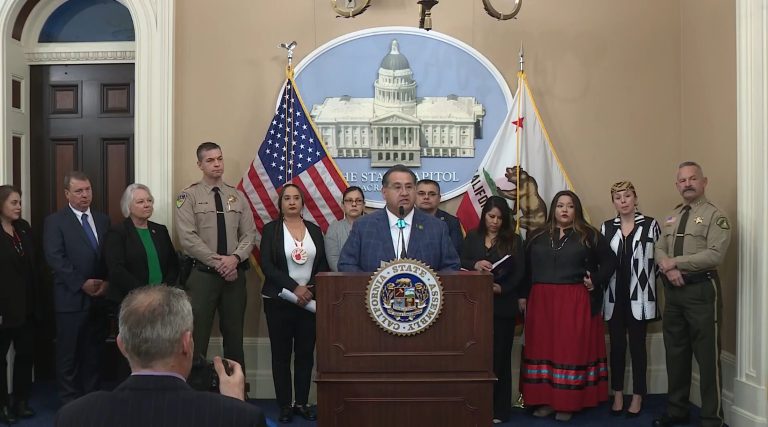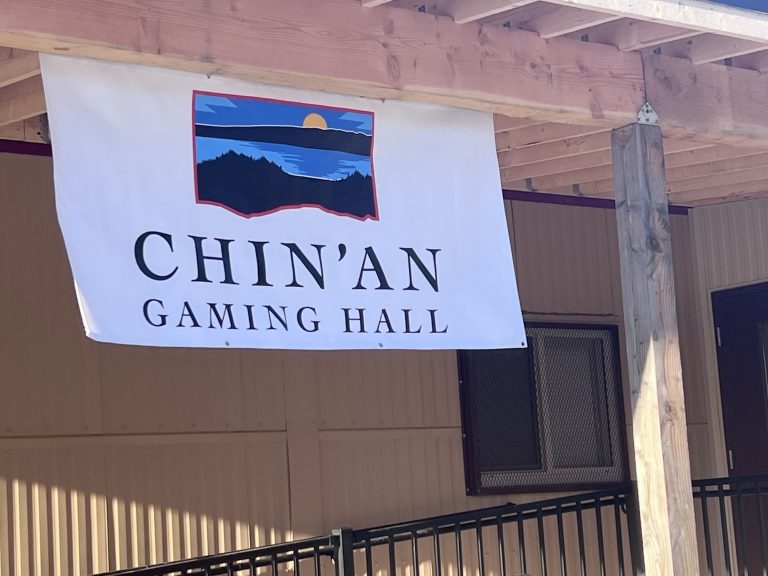Podcast: Play in new window | Download | Embed

Anchor: Antonia Gonzales
President Joe Biden on Wednesday told tribal leaders he made a commitment to tribal nations as a U.S. Senator in his 30s, then again when he ran for president, and now as leader of the United States. By Jill Fratis, KNBA News.
President Biden says he’s prioritizing and respecting nation-to-nation relationships.
He made the remarks at the White House Tribal Nations Summit taking place in person in Washington, D.C.
The President says his administration has worked on strengthening relationships with tribes and has made financial investments in Indian Country.
He says tribes not only have a seat at the table, but also have Native American representation in key positions, including Secretary of the Interior Deb Haaland.
“On my watch, we are ushering in a new era and advancing the way the federal government works with tribal nations and it starts by appointing Native Americans to lead the front lines of my administration. You know, starting with Sec. Haaland. We’ve followed dozens of Senate-confirmed Native American officials, over 60 Native American appointees all across my administration including in the federal courts.”
President Biden says he also restored the White House Council on Native American Affairs to improve coordination with federal agencies and tribes.
The administration is making a number of announcements this week relating to its work in Indian Country, from sacred site protection to measures to boost economic development to Native language revitalization efforts.
Tribal leaders from across the country attending the summit are interacting with key White House staff members and federal officials.
A group of about ten tribal leaders, including from Alaska, met privately with President Biden Wednesday.
Richard (Chalyee Éesh) Peterson, president of the Central Council of the Tlingit and Haida Indian Tribes of Alaska, says he was one the leaders to attend the meeting.
“It was pretty great. I actually was one of a few tribal leaders selected to meet the president. So, that was pretty special.”
Peterson says tribal leaders were able to have a brief moment with the president to share top priorities. He mentioned the taking of land into trust by the Bureau of Indian Affairs for his tribes.
According to the Interior Department, that recent action is the second fee-to-trust acquisition in Alaska since the passage of the Alaska Native Claims Settlement Act in the 1970s. And it’s the first in five years.
The land is located in Juneau.
Among things, it will help with federal services and programs, and fosters economic development.
“It was pretty historical and we were appreciative of that. And we talked about some of the other issues…talked about broadband, ARPA (American Rescue Plan), infrastructure. You know, it was very fast.”
Petersons says he’s grateful to have had a moment with the president. He says under the Biden administration, tribes are seeing more Native American and Alaska Native representation in Washington, which is helping tribes gain traction.
He says having staff that are Native is helping, so that it’s not just left to tribal leaders alone to educate officials on tribal issues.
Vice President Kamala Harris also addressed tribal leaders Wednesday.
She reiterated the nation-to-nation relationship building and the administration’s commitment to tribes.
“President Joe Biden and I believe the bonds between our nations are sacred. And we believe we have a duty to safeguard and strengthen those bonds, a duty to honor Tribal sovereignty, to ensure Tribal self-determination, to uphold our trust and treaty obligations, and to fight to make sure all Native communities have the support and the resources they need to succeed and to thrive.”
The White House Tribal Nations Summit continues Thursday.
 U.S. Sen. Jon Tester (D-MT) Wednesday announced the introduction of a bill that aims to provide more support for homeless Native veterans.
U.S. Sen. Jon Tester (D-MT) Wednesday announced the introduction of a bill that aims to provide more support for homeless Native veterans.
Aaron Bolton has more.
The bill would carve out a portion of housing vouchers for use by Indigenous vets enrolled in the VA and tribal housing authorities.
The housing vouchers are offered by the U.S. Department of Housing and Urban Development and given to vets enrolled in VA case management services.
Native Americans serve in the military at higher rates compared to other racial groups and studies indicate that Native veterans experience the highest rate of homelessness, according to the VA.
The bill would also require that both the VA and HUD consult with tribes to better offer resources to homeless vets and report to Congress on the issue every five years.
The current term of Congress is scheduled to end in the coming weeks.
Get National Native News delivered to your inbox daily. Sign up for our newsletter today.


